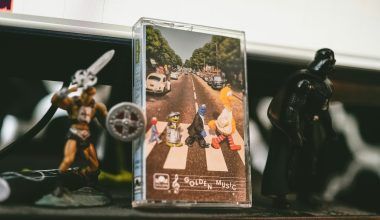Music is a universal language, touching hearts and connecting people. But have you ever wondered what transforms a melody into a memorable song? It’s the lyrics. Lyrics give voice to music, adding depth and emotion that resonates with listeners. Whether you’re an aspiring songwriter or just curious about the magic behind your favorite tunes, this blog will guide you through the fascinating process of crafting lyrics that complement music.
Why Lyrics Matter in Music
Lyrics are more than just words set to a tune. They tell stories, evoke feelings, and create connections. Imagine a song without lyrics; while it might be melodious, it often lacks the personal touch that makes it relatable. Lyrics bridge the gap between the listener and the artist, making music feel intimate and alive.
Finding Inspiration for Your Lyrics
Great lyrics often stem from authentic emotions or experiences. Start by identifying what you want to express. Is it joy, heartbreak, or a simple celebration of life? Inspiration can come from anywhere—a conversation, a book, or even a fleeting moment. Keep a notebook handy to jot down ideas as they come. These snippets can serve as seeds for your songs.
The Relationship Between Music and Lyrics
Music and lyrics should complement each other. Think of music as the canvas and lyrics as the paint. A soft, melancholic melody calls for reflective or poignant lyrics, while an upbeat tune works best with lively, energetic words. Pay attention to the mood and tempo of your music. This will guide the tone of your lyrics and ensure they blend seamlessly.
Structuring Your Song
Every song has a structure, and understanding this can make your lyric-writing process smoother. Most popular songs follow a format like:
- Verse: Sets the stage, introducing the theme or story.
- Chorus: The emotional core of the song, often repetitive and catchy.
- Bridge: Adds variety, offering a new perspective or twist.
Stick to this framework initially, especially if you’re new to songwriting. Once you’re comfortable, feel free to experiment with unconventional formats.
Crafting Memorable Lines
Ever had a line from a song stuck in your head for days? That’s the power of great lyricism. To create such impact, focus on:
- Imagery: Use vivid descriptions to paint pictures in the listener’s mind.
- Relatability: Write words that resonate with universal emotions or experiences.
- Simplicity: Don’t overcomplicate. Sometimes, the simplest lines are the most profound.
Using Rhyme and Rhythm
Rhyme and rhythm give lyrics their musical quality. While not every line needs to rhyme, strategic use of rhyming words can enhance the flow and memorability of your song. Similarly, maintaining a consistent rhythm ensures your lyrics fit naturally with the melody.
Overcoming Writer’s Block
Writer’s block is a common hurdle for lyricists. When it strikes, don’t force creativity. Instead, step away from your work. Go for a walk, listen to other music, or try freewriting—jotting down whatever comes to mind without judgment. Returning to your lyrics with a fresh perspective often helps.
Collaborating with Musicians
Sometimes, the best lyrics emerge from collaboration. Working with other musicians or songwriters can bring new ideas and perspectives. Don’t hesitate to share your work and seek feedback. Collaboration often leads to unexpected and brilliant outcomes.
Refining Your Lyrics
Once you’ve written your lyrics, take the time to polish them. Read them aloud to check for flow and coherence. Eliminate unnecessary words and ensure your message is clear. Remember, great songs are often the result of meticulous editing.
The Emotional Connection
Above all, your lyrics should evoke emotion. They should make the listener feel something—whether it’s happiness, sadness, or nostalgia. Authenticity is key. When your lyrics come from the heart, they’re more likely to touch others.
Exploring Different Genres
Different genres of music call for different styles of lyrics. For example:
- Pop: Focuses on catchy phrases and universal themes.
- Rock: Often explores deeper, more rebellious ideas.
- Country: Tells stories, often rooted in personal or cultural experiences.
- Hip-Hop: Emphasizes wordplay and rhythm, often addressing social issues.
Experimenting with genres can expand your lyric-writing skills and open up new creative avenues.
Conclusion: Music to Lyrics, a Timeless Craft
Turning music into lyrics is an art that requires practice, patience, and passion. By understanding the nuances of this process, you can create songs that are not only musically appealing but also lyrically profound. So pick up your pen, listen to your favorite tune, and let the words flow. Who knows? Your next lyric might just become someone’s favorite line.
For further reading, explore these related articles:
For additional resources on music marketing and distribution, visit DMT Records Private Limited.






